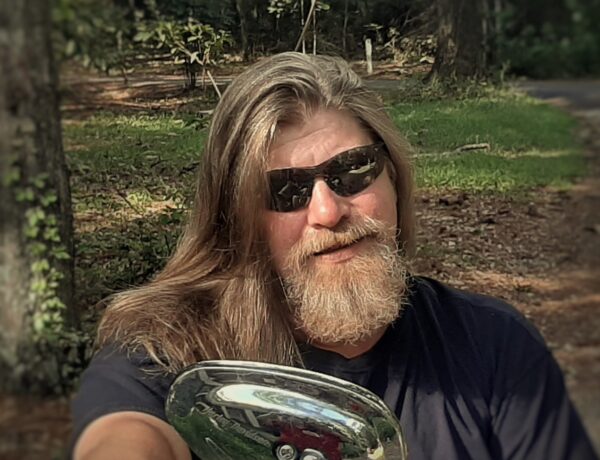Matthew Lansburgh is an award-winning author whose collection of linked stories, Outside Is the Ocean, garnered the Iowa Short Fiction Award and was a finalist for the 30th Annual Lambda Literary Award and the Ferro-Grumley Award for LGBTQ Fiction.
His captivating fiction has been featured in an impressive array of journals, including One Story, VQR, New England Review, Glimmer Train, Ecotone, Epoch, Alaska Quarterly Review, Electric Literature, StoryQuarterly, Columbia Journal, The Florida Review, Guernica, and Michigan Quarterly Review. Matthew’s work has been shortlisted twice for the prestigious Best American Short Stories series (2018 & 2022) and once for the Pushcart Prize series (2017).
Looking for inspiration to help you achieve your writing goals? Subscribe to our newsletter for exclusive insights into the routines, habits, and techniques of some of the most celebrated authors in history.
Hi Matthew, great to have you on Famous Writing Routines. We’re really excited to talk to you about your writing routine and process. For those who may not know, can you please tell us a little bit about yourself?
Thanks so much for inviting me to be part of your series! I grew up in California but have spent most of my adult life on the East Coast. Like most writers, I don’t have a trust fund and I’ve never won the lottery, so I’ve had to balance earning a living with my passion for writing. I pay the bills by working as a lawyer, and I feed my soul by writing fiction: my collection of linked stories, Outside Is the Ocean, won the Iowa Short Fiction Award and was published in 2017.
My fiction has appeared in journals like One Story, New England Review, Glimmer Train, Ecotone, and Alaska Quarterly Review, and was named a Distinguished Story in the Best American Short Stories series in 2018 and 2022. I received an MFA in fiction from NYU and have taught creative writing classes for both NYU and Catapult.
Can you take us through the creative process behind Outside Is the Ocean?
Outside Is the Ocean took a long time to write. I started writing the stories in the collection in around 2006, and, in retrospect, I realize that part of the reason the book took a decade to come together is that I spent the first few years simply learning how to write a decent story. Like most writers, I faced a lot of false starts and had to get comfortable throwing away endless bad drafts.
Early on in the process, I didn’t set out to write a book. I was simply trying to learn the basics of craft. At least half of the stories in the book went through dozens and dozens of drafts and took years to publish in journals. It wasn’t until I’d finished five or six of the stories that I started wondering whether I could arrange the pieces into a cohesive whole. Beginning in 2013 or so I began to spend a lot of time thinking about the arc of the book and the sequencing of the stories. Several readers have told me that the book reads like a novel, and that comment always makes me really happy!
The book explores the relationships between mothers and their children, and also touches on themes of identity and finding one’s place in the world. What drew you to these particular themes, and what do you hope readers take away from the book?
Outside Is the Ocean tells the story of a young woman who grew up in Germany during World War II and who leaves her home soon after her 20th birthday to cross the Atlantic and start a new life. The book traces Heike’s struggle to find love and happiness in America, and, although it is fiction, it’s inspired—at least in part—by my relationship with my own mother, which has always been somewhat fraught.
At the risk of sounding somewhat woo-woo, I’ll say that writing the book was a kind of a therapy for me, a way for me to try to understand my relationship with my mother and to examine it from various perspectives and through various lenses. Part of what kept me going through all of the drafts (and the ups and downs most new writers face) is the fact that the material meant so much to me personally and emotionally.
One of the biggest challenges in writing the book was to keep reminding myself that the book was fiction and that, as a result, I needed to make decisions about who the characters were and what happened to them that didn’t necessarily have any basis in my own life. Once I’d fully internalized that lesson, I freed myself up to let the characters say and do things that served the work—the fictional reality I was creating—as fully as possible. That was really helpful.
In terms of what I hope readers will take away from the book, I think it’s really important for me that people aren’t able to pigeonhole either Heike or Stewart. Like all human beings, they’re meant to be complex people who are flawed but not evil. Both characters do and say things that can be hurtful and misguided, but, ultimately, I believe they’re both doing the best they can to navigate life’s setbacks and challenges.
The book has been praised for its stark and honest depiction of loneliness and fractured family dynamics. How did you approach crafting these difficult and emotionally charged moments in your stories, and what challenges did you face in doing so?
As I alluded to above, one of my biggest challenges early on was hewing too closely to reality. I found that once I let go of “what actually happened,” I could make decisions that allowed the work to realize its fullest potential. Pushing myself to let Heike make extreme decisions—decisions my mother wouldn’t have made in real life—pushing myself to see Raymond’s vulnerability and humanity, pushing myself to develop sides of Stewart that don’t actually exist in myself: these were all crucial aspects of my development as the author of this book. I needed to see Heike and Raymond in ways that felt uncomfortable to me. I needed to force Stewart to say (and do) things that I could never say (or do) in real life.
Discover the daily writing habits of authors like Stephen King, Neil Gaiman, and Gillian Flynn with Famous Writing Routines Vol. 1 and learn how to take your writing to the next level. Grab your copy today!
Are there ways in which you think writing Outside Is the Ocean impacted your relationship with members of your family?
Definitely. Writing the book changed my relationship with my mother in some significant ways. Most importantly, it forced me to see her through a more sympathetic lens. For many years, as I was writing the book, I would take detailed notes about things she did or said as well as my reactions to being with her.
This allowed me to gain a certain distance from her that made me less prone to feeling triggered when she pushed my proverbial buttons. She still said and did things that upset me, but I was increasingly able to step outside of the situation and think about what was happening through the lens of my writer-self. Could this sequence of events be useful to me in one of the stories I was trying to write? What are the range of reactions Stewart might have to this particular situation? How might things play out if X or Y or Z happened?
What does a typical writing day look like for you?
I don’t have a set writing schedule. I wish I had the luxury of being able to write from 9:00 a.m. until 2:00 p.m. every day on a consistent basis, but I currently have a full-time job, so I mostly write on the weekends and on vacations. There have been times in my legal career when I’ve been able to work part-time (or take chunks of time off between jobs) and I’ve had a much more flexible schedule.
During these periods, I’ve been able to immerse myself in writing projects more fully. In general, I tend to write new work in short, intense bursts. During these periods I can write for six to eight hours a day with very few breaks. At the end of these periods, I invariably need time to recharge my creative batteries, but once a first draft is finished, I’ll often use evenings and weekends to edit.
How did the COVID-19 pandemic and lockdowns affect your routine?
COVID was actually a very productive time for me. I was doing remote legal work on a part-time basis, and, as a result, I was able to write a full draft of a novel as well as a handful of new stories during the pandemic. I realize that the pandemic was an incredibly difficult time for most people—especially people with young children, people who weren’t able to work remotely, people with underlying health conditions, and people whose families were impacted by COVID. My partner and I were both very lucky that we stayed healthy and were able to earn money by working remotely.
You’ve been recognized for your writing by numerous publications and awards, including being shortlisted for the Best American Short Stories and Pushcart Prize series. How has this recognition impacted your writing process and approach to your work?
For many years, I sent stories out to journals and received nothing but rejections. Of course, there were times when I felt discouraged, but I decided that, for me, writing was about more than seeing my words in print; it was about gaining a better understanding of myself and the people around me; it was about learning how to solve artistic challenges that felt difficult to crack.
When I began to achieve some of the markers of traditional success, the validation made me happy, but it was also somewhat misleading. There was a period during which I thought, “Okay, maybe things have changed. Maybe it’s not going to be a constant uphill battle anymore.” I was wrong, however. Very little has changed. I still need to subject my work to endless revision. I still start projects that end up going nowhere. I still feel humbled by how hard it can be.
You mentioned that you have taught creative writing classes for both NYU and Catapult. Can you tell us a little about your experience teaching writing? How has it influenced your own writing process?
I love teaching. I’m not exaggerating when I say that I find talking to students about how stories are constructed, about the decisions we—as writers—make when we put words on the page completely exhilarating. One of things I love about teaching is reminding myself that there are no hard and fast rules to writing a good story. As long as we’re attuned to the decisions we’re making and the implications of those decisions, we can do just about anything.
I’m a firm believer that people should write freely in their early drafts—to think expansively, to take risks, to write towards the “emotional heat” of the work. I also believe that revision is a crucial part of the process. Most of us can be guilty, at times, of rushing projects, of trying to hurry through drafts. I’m constantly reminding myself to slow down, to think about the decisions I’ve made, to ask myself to sketch out the range of possible solutions to a given problem I’m facing. Teaching forces me to articulate these kinds of first principles aloud and to remind myself to practice what I preach.
Affiliate disclaimer: Some links on this website are affiliate links. We may earn a small commission if you make a purchase through these links, but only promote products we truly believe in. We disclose affiliate links and give honest reviews.



No Comments